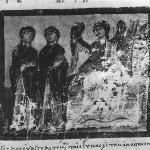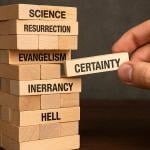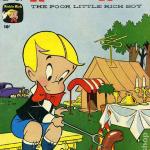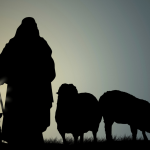GODSTUFF
OURS IS NOT TO REASON WHY: GUSTAV AND GOD
Father John Cusick and I spent part of our Sunday watching in disbelief as Hurricane Gustav roared toward New Orleans and the Gulf Coast of Mississippi, where we both have close personal connections to faith communities.
For John, a priest at Old St. Pat’s in Chicago, his thoughts went to the families at St. Clare in Waveland, Miss., a parish on the coast that was destroyed by Katrina three years ago. Old St. Pat’s has been working tirelessly to help its sister parish rebuild, sending financial support and teams of volunteers to do some of the literal heavy lifting.
My heart was with the folks at Lagniappe Presbyterian Church in Bay St. Louis, Miss., the town next door to Waveland, where my dear friend Jean Larroux is pastor. Jean grew up in Bay St. Louis, but was living and working as a pastor at a huge church in Memphis when Katrina blew away about 90 percent of the buildings in his hometown.
Jean, who lost his aunt and uncle in the hurricane and whose mother still lives in what the locals call “the Bay,” quit his job in Memphis, packed up his wife and young children, and moved back to the Bay to help rebuild. He ended up starting a church that he called “Lagniappe,” the Creole word that means, essentially, “a little bit extra.”
Lagniappe is a gift, something you can’t buy. It’s grace.
As I hugged the couch, glued to CNN and the Weather Channel, watching Gustav hurdle toward the Gulf Coast, my heart sank for Jean and other dear ones there who had been working so hard to rebuild their lives.
I prayed for the hurricane to peter out, to change direction, to go back out to sea. I prayed for protection for the folks who were evacuating and the few who would stubbornly stay behind. And I prayed for God to comfort their surely heavy hearts.
I also wondered what I would say if someone asked me, “Why would God allow this to happen again?” And I had no words.
So on Monday, as John and I continued to monitor the news reports and e-mail dispatches from our friends in Mississippi and Louisiana, I asked my favorite priest how he would answer that confounding “why” question.
John, with characteristic no-bull-allowed wisdom and spiritual sensitivity, gave me an answer that I found helpful, so I thought I’d share it here, in case any of you were wondering the same thing about where God is in this most recent storm.
“I don’t think the ‘why’ question is the ‘God question,” John said. “See, to me if you figured out the ‘why’ you’ve still got the problem. To me, the question and where God is located in these situations is: What are you going to do about it?”
Still, so many people will ask why? Why does God do this? Why doesn’t God stop it? Why do bad things happen to innocent people?
“That’s the fundamental question that’s asked anytime I have to deal with almost any human tragedy,” John said. “I remember burying two 19-year-olds who died in an auto accident. There were two killed and two slid out the back window. And you’ve got 200 19-year-olds sitting in a church and you know the question is: Why did this happen?
“I think faith is an action issue, not a philosophical musing. . . . I think what we are going to do about it — that’s where faith drives us into changing the world.”
When I was in Waveland and the Bay last summer, I saw people, filled with stubborn grace and inexplicable faith, rebuilding, rising from the ashes, and starting to change their world.
“I think part of it is also trying to figure out who we are. Once we figure out who we are, that is divine in origin,” he said, reminding me that the first question Adam asked, according to the biblical accounts, after he was created was not, “Who is God?” but “Who am I?”
“You’re not a victim of a hurricane,” John said. “You are a daughter of God.”
John also reminded me that the first description given of God in the Bible is not of a vengeful, wrath-filled destroyer, but of a creator; a divine being who formed the heavens and the Earth.
“I just don’t believe there’s a God somewhere saying, ‘We’re gonna whip it on New Orleans twice in three years,” he said.
What we do in response to human tragedy — as God’s hands in the world — says more about the divine than a burly storm on the radar ever could. (“I can tell you why there’s a hurricane. That’s easy,” John said, matter of factly. “Go on the Weather Channel and you’ll figure out more than you’ll ever want to know about pressure systems and all that stuff. That’s why it happens.”)
Recently, Old St. Pat’s held a fund-raiser to mark the third year of its Katrina project in Waveland. They raised $15,000 just from what folks sent to the church in the mail. “It’s just a general outpouring of, ‘We’re not going to let this thing die,’ ” he said.
Even before Gustav was a blip on the radar, people in Chicago, Waveland, the Bay, New Orleans and all over the world remained determined to rebuild, to do what the Jewish tradition calls “tikkun olam” — to heal the world.
“You know darn well that in 24 hours the phones will be ringing again with people saying, ‘How can I help?’ John said. “That, to me, is divine activity at work.”














